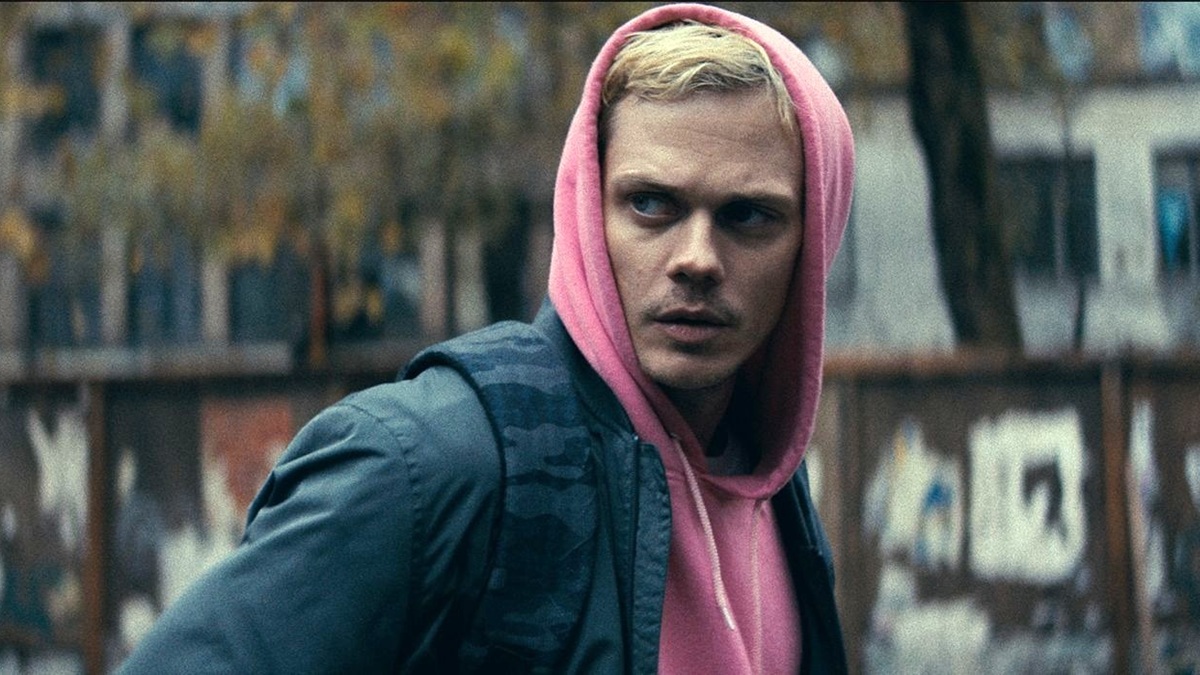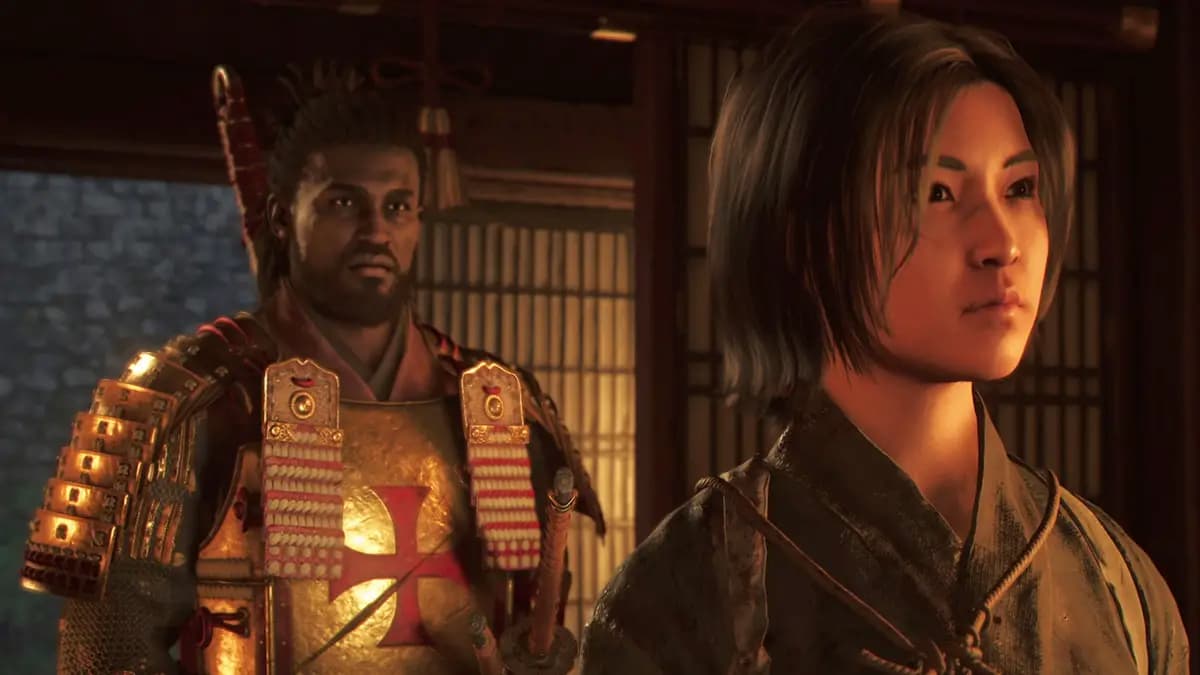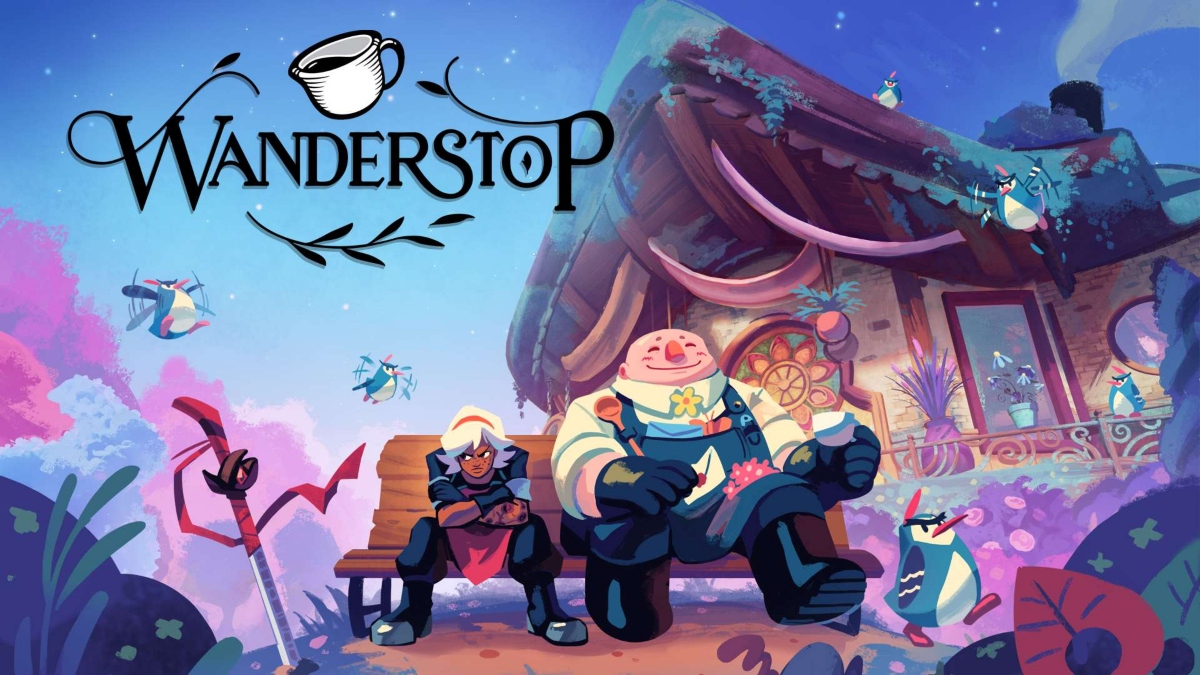Developed by Platinum Games. Published by Nintendo. Released October 24, 2014. Available on Wii U. Copy provided by publisher.

Is Bayonetta an example of sexuality done right, or a cynical appeal to straight men, culled from the same mentality that gave us Rob Liefeld? Is the title character an empowered woman who owns her own smutty behavior, or is she undermined by endless crotch shots and a propensity for nudity? Fact is, all of these questions can be answered in the affirmative. Yes, it’s empowering, and it’s undermining. It’s sex done right, and it’s horny pandering. That’s the beauty of art – it can mean many things to many different people.
Bayonetta 2 has opened the door to the same kind of debates the original kicked off, and I consider that a positive thing. That this series – ostensibly one of the most ridiculous pieces of interactive entertainment on offer – can be part of conflicted, nuanced debate is something Platinum Games ought to be proud of. Whether you find Platinum’s offerings tasteless or affirming, I don’t think any of us can deny it’s the nucleus of fascinating debate.
Personally, I find Bayonetta so perfectly outrageous that it gets away with its gratuitous behavior, and Bayonetta 2 only amplifies the absurd tone. Let’s make no mistake – this is an absolutely stupid game. Its narrative is nonsensical, its characters outlandish, its visual style preposterous. Madness upon madness is piled high upon a foundation of watertight, florid combat, and I honestly wouldn’t have it any other way.
The titular Bayonetta is up to her usual tricks, battling against angels because she’s a witch, and witches do that for some reason. As I say, the story is basically gobbledygook, but it delivers itself with such absolute sincerity that one buys into its outlandishness without much effort. Sure, that’s a headless red man with wings who speaks out of a giant baby’s face on his sword, and I’ll roll with that because Bayonetta 2 is confident enough that it makes sense. It’s an audacity I’ve come to admire in many a game committed enough to sell me nonsense, and if Platinum’s committed to anything, it’s nonsense.
The original Bayonetta had a damn fine combat system, but everything in the sequel feels improved and finely tuned. Superficially simple, the system of dodges and combos that make up an average fight is often rewarding in its hidden depth, with a sense of timing and an openness to experimentation providing plenty of payoff. Dodging an enemy attack at the right moment activates Witch Time, slowing down the surroundings and allowing players to pull off moves with a reduced fear of reprisal. Bayonetta uses both her arms and legs – mapped to separate buttons – to attack, and combining them creates an array of extravagant special maneuvers. Enemies are thus dealt with through a tricky dance of ducking and weaving, landing dazzling counter-strikes with every open opportunity.
Despite its inherent challenge, Bayonetta 2 is great at making even newcomers feel good. It’s impossible to not make Bayonetta pull off awesome moves even if one’s just randomly smashing buttons, and of course those who master her abilities will be able to pull off progressively more impressive stuff. While the unskilled will get through the game – with more ease than they could with the original – one achieves higher rewards for quickly disposing of opponents without taking damage or using items. Each fight is graded, on a scale of stone to pure platinum, and one will have to get good if they wish to feel special. Like with the first game, it’s a very pleasant system that encourages improvement rather than overly punishes the less skillful.

Fighting feels quicker and more varied this time around. Despite enjoying it, I always found Bayonetta a little draining after extended periods of play. There’s so much going on with the sequel that the arrival of fresh enemies to pummel only filled me with excitement. This is helped by a healthy drip-feed of new weapons and gear that can be purchased from Rodin’s store using halos, including a bow that shoots insects (because why not?), a set of scissor-like blades, and a crackling, tentacle-summoning whip. Accessories can also be purchased, allowing Bayonetta to summon butterflies that shield her from damage, or negate an enemy attack with a timed flick of the movement stick.
The real joy of shopping, however, is found in the attainment of costumes. Nintendo’s influence means that Bayonetta can dress up like Fox McCloud, Link, Princess Peach and more, and each new costume adds a little extra nuance to the gameplay. Acquiring and experimenting with costumes is something I found distinctly enjoyable, and it’s where I recommend one’s currency be invested.
The main campaign will last about six to eight hours, and there’s replay value for any looking to best their scores and earn higher grades. One could also try the online co-op mode, in which two players fight together in various arenas. Despite being cooperative, one rarely feels connected to the other player in any meaningful sense – you’re just fighting with some other guy hanging out. The fact you’re ostensibly competing for points in each stage makes it more of convoluted versus mode, at any rate.
As an over-the-top spectacle fighter, Bayonetta 2 features plenty of boss fights, and they’re some of the hugest, flashiest, most barmy of the genre. Whether fighting gigantic cherub-faced dragons in the sky, or dealing with mechanical demon machines, there is a ton of unforgettable encounters on offer. They’re all born from the “tough but fair” mold, though occasionally a battle can be so chaotic and visually busy that it’s hard to tell where the attacks are coming from. This is the downside of such a dazzling fighter – as much as it requires precise timing, it can be such a maelstrom of lights and colors that it’s easy to get lost in the onscreen action.
For the most part, failure will feel like it’s your fault. If you took too much damage to earn a platinum grade, then you should have been more careful. Still, there are times where events are unfolding at such speed, and with so many potential dangers on screen, that you’ll feel more lucky than talented to get out of it intact. The majority of the game is all down to the player’s abilities, but frustrating moments are had when the onscreen disorder is kicked into high gear.
While stages are predominantly sequential journeys from skirmish to skirmish, there are some beautiful little instances of varied gameplay. Do you want to ride on a demon unicorn at breakneck speed? Fancy surfing through an ocean storm while avoiding bits of broken buildings? Do you like mechs? Big mechs? Big mechs with explosions that come out of their feet? Bayonetta 2 has your infantile love for near-unreasonable alacrity covered.
The big ticket sequences especially pop thanks to how gorgeous the game looks. The Wii U may not be anywhere near as powerful as the PS4 or Xbox One, but this game could confidently stand next to any recently released game and not have to worry about looking ugly. Thanks to a strong character and enemy design, a smart use of color contrast, and truly impressive water renders, Platinum Games delivers some fine visuals. The soundtrack is thoroughly lovely too, marrying the dramatic with the camp in a way that rarely fails to raise a smile.
One sore point, however, lies with the voice acting. Most of it’s fine, but one principal character, the mysterious child Loki, is absolutely abysmal. I’m not sure if it’s an American trying to put on a British accent, or if they just found the most awkward boy in the world to provide his voice, but he has a prominent role throughout the game, and he’s dreadful. He made me cringe more than any amount of long-legged women spinning round a stripper pole.
Still, even he’s worth suffering to enjoy one of the most accomplished action games I believe I’ve had the pleasure of playing.
Bottom Line: Bayonetta 2 may be nonsensical, tacky, and visually anarchic, but its got some of the finest combat an action game could offer. It’s packed with style, looks magnificent, and is as elegant as spectacle fighter as you could hope for.
Recommendation: It’s absolutely okay to like Bayonetta. It’s okay to NOT like Bayonetta as well. See how easy that is?
[rating=4.5]













Published: Oct 18, 2014 5:54 PM UTC